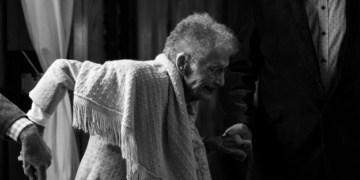The case of Kyle Rittenhouse has sparked intense debate across the nation. A young man at the center of a highly publicized trial, he became a symbol for many issues surrounding gun rights, self-defense, and justice in America. But beyond these broader themes lies a critical question: is he competent to stand trial? The competency to face legal proceedings isn’t merely about understanding charges; it delves deeper into mental and emotional readiness. This article explores who Kyle Rittenhouse is, the serious charges against him, and what competency means in this context—along with the factors that influence such evaluations. As we navigate through this complex topic, we’ll also touch on the controversy that surrounds this high-profile case. Buckle up for an insightful ride through one of America’s most talked-about trials!
Who is Kyle Rittenhouse?
Kyle Rittenhouse emerged on the national stage in 2020 amid protests following the shooting of Jacob Blake in Kenosha, Wisconsin. At just 17 years old, he traveled from his home in Antioch, Illinois, armed with an AR-15-style rifle.
Rittenhouse claimed he intended to protect property and assist those injured during the unrest. The events that unfolded resulted in him fatally shooting two men and injuring another. This led to immediate public outrage and support from various groups.
His actions ignited a firestorm of debate over self-defense laws, gun rights, and civil unrest. As a young figure caught up in a larger narrative about justice and morality, Rittenhouse’s story quickly became emblematic of deep societal divides. His trial has since attracted media attention worldwide as both supporters and opponents weigh in on the implications of his case for America’s legal landscape.
The Charges Against Him
Kyle Rittenhouse faced several serious charges stemming from the events of August 25, 2020. This was during a protest in Kenosha, Wisconsin, where he shot three individuals.
The primary charges included first-degree intentional homicide and attempted first-degree intentional homicide. These accusations arose after Rittenhouse fatally shot two men and injured another during chaotic confrontations.
Additionally, he faced charges related to possessing a firearm as a minor. The legal implications of this were significant given his age at the time—17 years old.
Rittenhouse’s defense argued self-defense throughout the trial. They maintained that he acted to protect himself against perceived threats amid escalating violence.
Each charge carried substantial consequences. The legal proceedings attracted national attention and sparked widespread debate on issues like gun rights and self-defense laws.
Importance of Competency in a Trial
Competency in a trial is crucial. It ensures that the defendant understands the charges, proceedings, and potential consequences. This understanding allows for meaningful participation in their defense.
Without competency, a trial can become unjust. A defendant unable to grasp the legal process may not effectively communicate with their attorney or make informed decisions. This can lead to flawed judgments and miscarriages of justice.
Furthermore, evaluating competency protects public trust in the judicial system. When defendants are competent, it reflects an adherence to due process rights. Everyone deserves a fair chance at defending themselves against accusations.
This importance extends beyond individual cases; it upholds the integrity of legal standards nationwide. Ensuring competency safeguards both personal rights and societal values within courtroom dynamics.
Factors Affecting Competency
Competency to stand trial involves multiple factors that can influence a defendant’s ability to understand the proceedings and participate adequately in their defense.
Mental health plays a crucial role. A history of mental illness or current psychological disorders can impact comprehension and decision-making skills.
Age is another significant factor. Younger individuals may struggle more with grasping legal concepts compared to adults, affecting their competency evaluation.
Education level also comes into play. Those with lower educational backgrounds might find it difficult to follow complex legal discussions, leading to challenges during the trial process.
Substance abuse can temporarily impair cognitive functions, further complicating assessments of competency. This aspect often requires careful scrutiny by professionals who assess mental state at the time of the alleged offense and during court proceedings.
External influences such as media coverage or public opinion can add stress and confusion, ultimately impacting a defendant’s clarity of thought regarding their situation.
Evaluating Rittenhouse’s Competency
Evaluating Kyle Rittenhouse’s competency to stand trial involves multiple layers of analysis. Mental health assessments play a crucial role. Experts often look at psychological evaluations to determine an individual’s understanding of the legal process and their ability to assist in their own defense.
Rittenhouse was 17 years old at the time of the incident, raising questions about maturity and decision-making capabilities. Age can significantly impact one’s judgment, especially under stressful conditions.
The context surrounding his actions also matters. The chaotic environment during protests adds complexity, potentially affecting his mental state before and after the events unfolded.
Legal teams may present evidence from various professionals to establish whether he comprehended both his actions and their consequences. This evaluation is not just a formality; it directly influences how justice is served in this high-profile case.
Controversy Surrounding the Case
The Kyle Rittenhouse case sparked intense debates across the nation. Opinions were sharply divided, creating a media frenzy that captured public attention.
Supporters viewed him as a symbol of self-defense and Second Amendment rights. They argued he acted to protect himself amid chaos during protests in Kenosha, Wisconsin.
Conversely, critics labeled him an armed vigilante. Many felt his presence escalated tensions instead of calming them. The narrative surrounding his actions raised questions about racial dynamics and gun violence in America.
Protests erupted, with people on both sides expressing their views vocally. Social media played a significant role in amplifying these discussions, adding layers to the controversy.
As the trial unfolded, emotions ran high. The courtroom became not just a place for legal proceedings but also a battleground for societal values and beliefs regarding justice and accountability.
Conclusion
Kyle Rittenhouse’s case has sparked intense debate and scrutiny. The assessments of his competency to stand trial play a crucial role in shaping the legal proceedings. As the public continues to follow this high-profile situation, understanding the nuances of mental fitness and its implications is vital.
As more developments unfold, all eyes will remain on how this complex scenario plays out in court. Each step taken will contribute to a larger dialogue about law, morality, and the systems we trust for fairness. The outcome may set important precedents that extend beyond just one individual’s fate; it could impact many others navigating similar circumstances in their lives or communities.























































